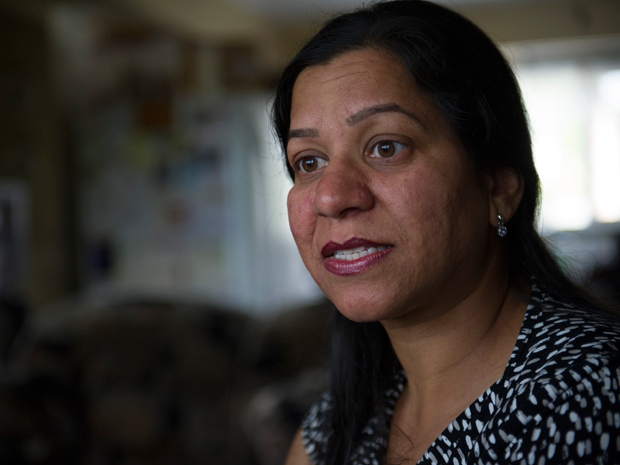‘We are zero’: Immigrant says she can’t escape sting of India’s caste system, even in Canada
Canada
 VANCOUVER: For most of her life, Kamlesh Ahir has been trying to escape the caste system that’s defined her from birth.
VANCOUVER: For most of her life, Kamlesh Ahir has been trying to escape the caste system that’s defined her from birth.
She went to university, abandoned her religion and, in 1994, left India for Canada, a new land offering a fresh start.
Or so she thought.
To an outsider, Ms. Ahir is no different than the more than 200,000 people of South Asian heritage who call Metro Vancouver home.
Yet among her own people, her last name brands her as a dalit, the people formerly called untouchables.
Dalits occupy the lowest rung in the Indian caste system, a rigid class structure rooted in Hinduism that dictated occupation and social status.
Condemned to live on the margins of society, they used to be denied access to schools and temples. They were confined to jobs deemed unclean, such as handling human waste or dead animals, and could be punished for letting their shadow fall on someone of an upper caste.
The Indian government banned castes more than 60 years ago and gave dalits substantial rights. But discrimination remains widespread, especially in rural areas. Even in Canada, ingrained attitudes, centuries old, are not easy to change.
“They think we are bulls–t. We are zero. We are a dog, less than a dog,” says Ms. Ahir, who was born into the chamar caste, whose members traditionally worked as tanners.
“They think we are nothing. It doesn’t matter if we are a doctor, teacher, because we belong to the lower castes.
“I’m in Canada … But the bulls–t castes are still here. We live it every day.”
Dalits occupy the lowest rung in the Indian caste system, a rigid class structure rooted in Hinduism that dictated occupation and social status.
Condemned to live on the margins of society, they used to be denied access to schools and temples. They were confined to jobs deemed unclean, such as handling human waste or dead animals, and could be punished for letting their shadow fall on someone of an upper caste.
The Indian government banned castes more than 60 years ago and gave dalits substantial rights. But discrimination remains widespread, especially in rural areas. Even in Canada, ingrained attitudes, centuries old, are not easy to change.
“They think we are bulls–t. We are zero. We are a dog, less than a dog,” says Ms. Ahir, who was born into the chamar caste, whose members traditionally worked as tanners.
“They think we are nothing. It doesn’t matter if we are a doctor, teacher, because we belong to the lower castes.
“I’m in Canada … But the bulls–t castes are still here. We live it every day.”
I’m in Canada … But the bulls–t castes are still here. We live it every day’
Some dalits interviewed, including Ms. Ahir’s husband Sutey, shared stories of how they were called slur words by fellow Indo-Canadians.
One man recounted listening to colleagues, who did not know he was dalit, exchanging crude jokes about dalit women and rape.
Another woman recounted how her best friend, a woman from what was considered a higher caste, was divorced by her husband who couldn’t stomach their friendship.
Activists say some dalits who own businesses are scared of being outed in case customers stop patronizing them. Many change their names.
Divisions on the basis of castes are visible in Hindu temples and Sikh gurdwaras. Ironically, Sikhism recognizes all people as equal. Officially, there are no castes. But reality is different.
The dalit gurdwara in Burnaby was founded in 1982 after dalit worshippers felt unwelcome in an upper-caste gurdwara.
In between preparing samosas with mint chutney and piping-hot cups of chai tea, Ms. Ahir explains why she abandoned Hinduism and converted to Buddhism.
The Hindu gods kept her people down, she says scornfully.
The only reason she was able to go to school, get a passport and immigrate was because of Dr. Bhimrao Ambedkar, the chief architect of India’s constitution, revered by dalits as a hero.
Racism is something she can understand, she says, because people look different.
“But god, my colour is the same. My language is the same. My living standard is the same. But still they are discriminatory to me.”
Source: National Post





